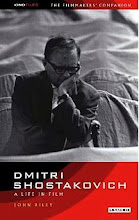
 Last night's WEA Film Club at Clapham Picturehouse was great fun and the films were about as big a set of contrasts as you could imagine.
Last night's WEA Film Club at Clapham Picturehouse was great fun and the films were about as big a set of contrasts as you could imagine.The feature was Hanna and a post-film discussion ranged over how sympathetic the lead character was, how well it mixed the thriller and fairy-tale elements, the (intentional or otherwise?) trajectory of Joe Wright's career, the publication history of the Grimm's stories, and the veracity of Hollywood accounting methods...
Then it was downstairs to the bar for a Staropramen (or whatever), a collection of short films and a chat with the makers.
We kicked off with two from Alan Walsh, whose impressively "just get on with it" approach meant that, when he realised he needed another film for the event, he just went out and made it. But first there was Mirror Mirror, a quirky little film that's a reinterpretation of something that his film school managed to destroy.
Mirror Mirror from Alan Walsh on Vimeo.
That was followed by his new one, so hot off the metaphorical moviola that, announced as Coffee, it had been retitled Short Changed.
Alan talked about his training in Prague before his regular collaborators Anthony Cozens and Ben Jeen Williams joined in to give us an insight into where they get their inspiration from and the way they work.
Based in the East End, Rebecca makes films, curates, writes etc. She brought along three of her films.
Skin Code is the film element of an installation that she took to the Cannes Film Festival. In a one-person cinema, the viewer watches extreme close ups of a man's body to a soundtrack of Gregorian chant. Amusingly, while lots of Cannes visitors liked it, they were mostly men who were keen to reiterate that they didn't like it in that way...
Exhumation is another installation film, screened in the Belfry of St John's church in Bethnal Green as part of Ghost II, an exhibition curated by Sarah Sparkes and Dr Ricarda Vidal. It's another semi-abstract piece very much concerned with the body.
Rebecca was interested to see her films in different circumstances from the ones they were conceived for: a room full of people rather than a one-person box and on a screen rather than a wall and, à propos Hanna, touched on their gender concerns.
EXHUMATION from Rebecca Feiner on Vimeo.
Next up was a free-form documentary, Spirit of Hackney Wick, which roams over the 2009 Hackney Wicked Arts Festival, which is organised by local artists in the shadow of the gates which have divided Hackney preparatory to the 2012 Olympics. Afterwards we talked about how the film undercuts the official propaganda about the Olympics and how it is increasingly difficult for artists to find affordable places to live and work.
Next month's film (13 June) is the documentary Senna, when director Asif Kapadia,who will also be interviewed before we move on to another selection of short films and directors (that's the films that are short, not the directors. Though, of course, if you are a short director...)
As before, feel free to get in touch if you'd like the chance to come along and show your films.


